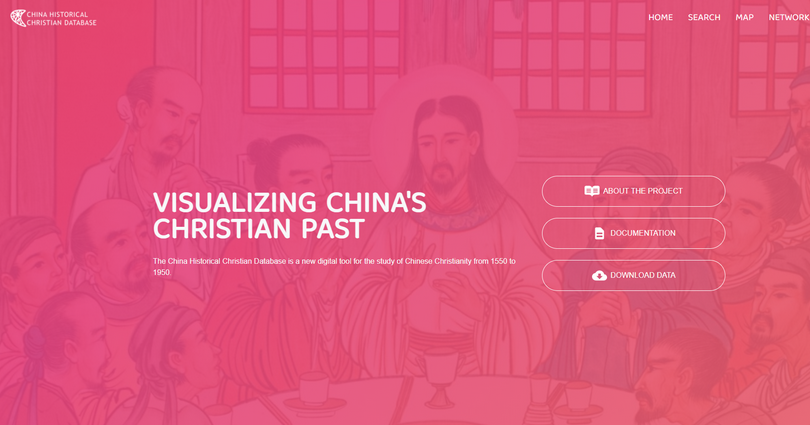On Wednesday July 27, the Center for Global Christianity and Mission at Boston University launched and showcased the first version of the China Historical Christian Database (CHCD) via a zoom meeting.
Contributed to by joint efforts of over 30 researchers, assistants, and a number of global institutes, CHCD is a digital tool that quantifies and visualizes the place of Christianity in modern China (1550-1950).
According to the project introduction, it “provides users the tools to discover where every Christian church, school, hospital, orphanage, publishing house, and the like were located in China, and it documents who worked inside those buildings, both foreign and Chinese". Collectively, this information creates spatial maps and generates relational networks that reveal where, when, and how Western ideas, technologies, and practices entered China. Simultaneously, it uncovers how and through whom Chinese ideas, technologies, and practices were conveyed to the West.
Joined by about 100 participants, the virtual launch featured the three principal investigators of the project - Eugenio Menegon, Daryl Ireland, and Alex Mayfield.
Eugenio Menegon, associate professor of Chinese history at Boston University, introduced that the database focuses on Christianity in the geographical area of China as defined today, including Taiwan and Hong Kong, within the time frame of 400 years between 1550 and 1950.
Alex Mayfield, a postdoctoral researcher at the Center for Global Christianity and Mission explained that the project started in Professor Menegon’s course when exploring digital humanity toolsets. Archives and records of multiple languages contributed by partner institutes have been dug up, cleaned, and analyzed to develop this digital tool.
“Our major goal was to create through the interface and technology so that we could increase digital literacy, and people could truly understand and visualize the history of Christianity in China, a history that is sadly often hidden to many people around the world”, said Mayfield. The website is free, open, and accessible to all, with no need for registration.
Daryl Ireland then showed how this open source database gives an insight into the institutions, places, and individuals involved in Christianity in China. The associate director of the Center for Global Christianity and Mission demonstrated that users can search ‘people’, ‘institutions’ or ‘events’ in the ‘map’ tab to see their number, location, existing time and other information visualized on the map. By using a ‘heat map’, users can also see the density of searched objects.
Director Ireland explained that this database was intended to show spacial and relational information, rather than a biographical introduction. When clicking each entity, basic information including Western name and/or Chinese name, religious family, category and start year is shown, while the other boxes, personal/institutional relationships and corporate relationships allow users to explore more about the network, which could provide an unusual insight into a missionary’s life in China.
To use this tool wisely, Director Ireland recommended users to refer to the ‘documentation’ tab to understand what data was collected for each category. “If you look at this, you will quickly realize that there will be some things you’re able to do with our data and some things you won’t. For instance, we do record when someone arrived in China and when someone left. So you could do a comparison between men and women: how long did men stay in China versus how long did women stay in China. You can’t do that with the interface because we didn’t design it to do that, but you could download the data and analyze it.”
The team was still working on the expansion and optimization of the project, said the principal investigators. The website has Chinese (simplified/traditional) interfaces, yet the search engine in Chinese is rather limited at the moment and is therefore expected to be improved. The investigators also suggested that they hoped to obtain more data on Chinese Christians and organizations, so that the current tilt towards Western missionaries could be corrected.
Inevitably, the website may include errors, source mistakes, and incomplete data. The team encourages users to contact them via the website to report mistakes and suggest data sources.












